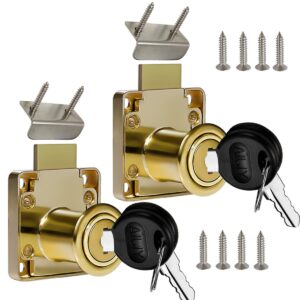Imagine sitting down to enjoy your favorite video game, coffee in hand, and before you know it, hours have passed. You were “just playing for a bit,” but the sun has set, and real-life tasks are waiting. This is where a game play timer comes into the picture — a simple yet powerful tool that helps you keep track of your gaming sessions.
Think of it like a referee in sports: they don’t stop the fun, but they make sure the match is fair and runs smoothly. In gaming, a play timer can be your personal referee, helping balance enjoyment with responsibility.
In this guide, we’ll dive deep into what a game play timer is, why it matters, how it works, and how to make the most of it — whether you’re a casual player or a competitive gamer.
1. What Is a Game Play Timer?
A game play timer is essentially a tracking tool that measures how long you spend in a game. It can be a built-in feature in a console, a part of game settings, or a separate app or device.
-
Digital Timers – Found in most modern games and consoles.
-
Physical Timers – Old-school gadgets like kitchen timers, repurposed for gaming.
-
App-based Timers – Mobile or PC apps that track and even limit play time.
While it sounds simple, its role in shaping a better gaming experience is bigger than it appears.
2. Why Do Gamers Use a Play Timer?
You might wonder — why would I want a clock keeping track of my fun? Here’s why:
-
Health and Wellness – Long gaming sessions can strain your eyes, posture, and sleep schedule.
-
Parental Control – Parents can ensure kids don’t overdo screen time.
-
Game Progress Tracking – Some players enjoy knowing exactly how much time they’ve invested.
-
Self-Discipline – Helps in balancing work, study, and gaming.
It’s not about limiting joy — it’s about ensuring you can enjoy games for the long run without burning out.
3. The Psychology Behind Time Tracking
Our brains lose track of time when we’re deeply engaged — psychologists call this flow state. Games are designed to be immersive, so a play timer works as a gentle reminder that time is still ticking outside the screen.
It’s a bit like having a friend tap you on the shoulder mid-conversation and say, “Hey, just letting you know it’s been two hours.” They’re not telling you to stop — just giving you awareness.
4. Types of Game Play Timers
4.1 Built-In Game Timers
Some games show your total playtime in stats or save files. For example, RPGs like The Legend of Zelda track exactly how many hours you’ve played.
4.2 Console-Level Timers
Modern consoles like PlayStation, Xbox, and Nintendo Switch keep records of game playtime across all titles.
4.3 Third-Party Apps
PC gamers often use platforms like Steam, which logs hours played automatically.
4.4 Manual Timers
If your game doesn’t have tracking, you can use a stopwatch or timer app on your phone.
5. Setting Time Limits
Timers aren’t just about tracking — they can also set limits. This feature is especially useful for:
-
Parents setting gaming hours for kids
-
Competitive gamers sticking to training schedules
-
Players trying to avoid all-night marathons
Most timers allow for:
-
Fixed Session Limits – Example: Play for two hours max.
-
Daily Limits – Example: No more than four hours total per day.
-
Break Reminders – Notifications for stretching, hydrating, or resting eyes.
6. Benefits of Using a Game Play Timer
6.1 Better Health
Regular breaks prevent eye strain, headaches, and body fatigue.
6.2 Balanced Lifestyle
Timers help integrate gaming into a healthy routine with work, exercise, and social time.
6.3 Performance Boost
Professional players often use timers to structure focused practice sessions.
6.4 Family Harmony
Avoids arguments about “too much gaming” by making limits clear and fair.
7. Common Misconceptions
Some gamers think timers are restrictive. In reality:
-
They don’t force you to stop — they just inform you.
-
They’re customizable — you set the rules.
-
They can improve focus — shorter, intentional sessions often feel more rewarding.
8. How to Choose the Right Game Play Timer
When picking a timer, consider:
-
Ease of Use – Simple interface and quick setup.
-
Compatibility – Works with your platform (PC, console, mobile).
-
Custom Alerts – Sound, vibration, or pop-up notifications.
-
Tracking History – See weekly or monthly summaries.
For example, if you’re on PC, Steam’s built-in log might be enough. But for console players, a dedicated timer app could be better.
9. Tips for Making the Most of a Timer
-
Pair It with Goals – Decide what you want from each gaming session.
-
Use Break Timers – Short breaks keep energy levels high.
-
Review Your Stats – See if you’re spending time the way you want.
-
Adjust as Needed – Your schedule might change — so should your timer settings.
10. Timers in Competitive Gaming
In esports, time management is as important as skill. Pro gamers use timers to:
-
Maximize focused training hours.
-
Avoid fatigue during tournaments.
-
Schedule review sessions for recorded gameplay.
It’s a reminder that even at the highest level, success isn’t just about how much you play — but how you play.
11. Game Play Timers and Parental Controls
For parents, timers are one of the most effective tools for managing kids’ gaming.
They offer:
-
Clear Boundaries – Kids know exactly when gaming ends.
-
Teachable Moments – Builds self-control and time awareness.
-
Consistency – Avoids constant negotiation over “five more minutes.”
12. The Future of Game Play Timers
With AI and smart devices, future timers could:
-
Adapt to Your Mood – Adjust limits based on stress or fatigue.
-
Integrate with Health Apps – Sync with step counters and sleep trackers.
-
Reward Healthy Play Habits – Offer in-game bonuses for taking breaks.
We’re heading toward a world where timers don’t just count minutes — they care about your well-being.
Conclusion
A game play timer isn’t about limiting fun — it’s about protecting it. Like a lighthouse guiding ships, it helps you navigate the sea of immersive gameplay without losing track of time. Whether you’re a weekend warrior, a competitive player, or a parent, a timer can be the simple, invisible ally that makes gaming healthier, more balanced, and ultimately more enjoyable.





